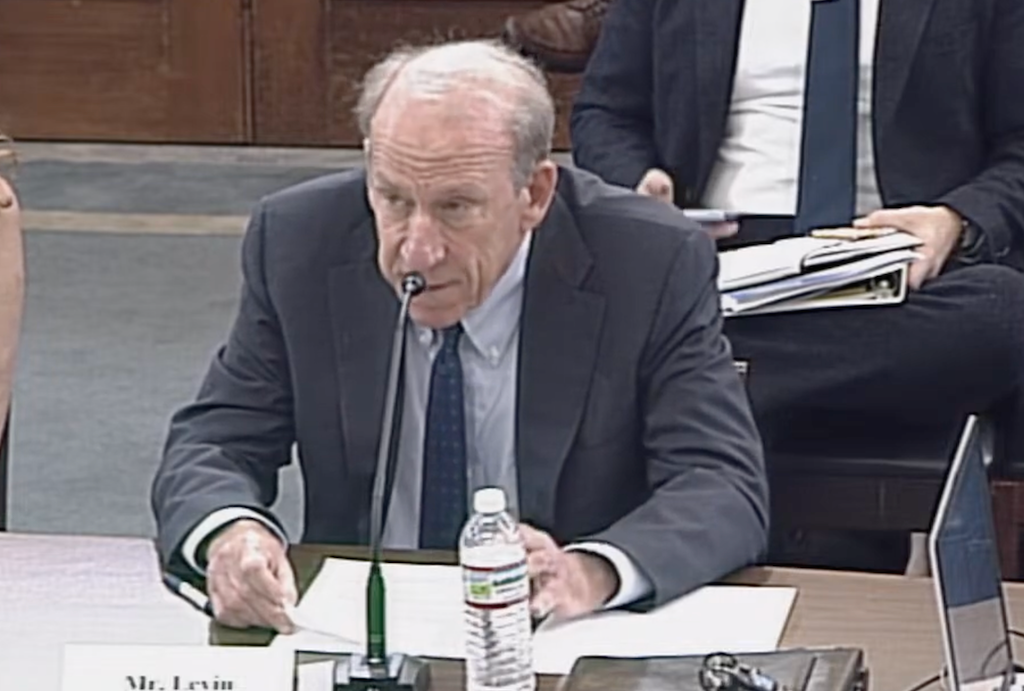Dems, Levin Defend BEAD in House Hearing
Republicans have criticized the program for moving too slowly
Jake Neenan

WASHINGTON, September 10, 2024 – House Democrats and a witness defended the Biden administration’s flagship broadband subsidy program at a House hearing Tuesday.
GOP lawmakers have criticized the $42.5 billion Broadband Equity, Access, and Deployment program for moving too slowly. They’ve pointed out that BEAD was established with the Infrastructure Act in 2021 and had yet to fund any projects while the $10 billion Capital Projects Fund, by contrast, was stood up months earlier and has now spent the vast majority of its cash.
But that’s in part because BEAD – aimed at connecting every home and business without adequate broadband – was set to be based on improved broadband coverage maps after a previous Federal Communications Commission program funded locations that didn’t need it, said Blair Levin, an FCC Chief of Staff in the 1990s and current industry analyst. The map used to determine each state’s BEAD allocation wasn’t finalized until May 2023, and states are required to field local challenges to that coverage data before awarding funds under the law.
“Capital Projects, like prior deployment programs, allocates funding that all agree is insufficient and then makes incremental progress in connecting unserved areas,” Levin said. “BEAD does the opposite. It provides a huge amount of money but requires states to fill in the entire map. It’s a totally different and much more difficult policy problem.”
Another sticking point for Republicans has been the National Telecommunications and Information Administration’s enforcement of the Infrastructure Act’s requirement that states ensure BEAD participants offer affordable plans for low-income subscribers. The agency has pushed states to effectively set a price cap for those low-cost plans, which Republicans on the House Energy and Commerce Committee have said amounts to rate regulation, which the law prohibits. Republican leaders of the Energy and Commerce Committee in July opened an investigation into NTIA’s communications with state broadband offices over the issue.
Democratic members of the House Subcommittee on Communications and Technology, including Reps. Frank Pallone, D-N.J., and Yvette Clark, D-N.Y., called the framing “deceptive,” arguing the law was designed to ensure low-income consumers would be able to access service with BEAD infrastructure.
Misty Ann Giles, head of Montana’s Department of Administration and responsible for the state’s broadband programs, said that requirement and other NTIA policies have resulted in real bureaucratic hurdles, though. Her state didn’t want to discourage provider participation and spent months in back and forth with the agency over the requirement before getting its BEAD plan approved – with a relatively higher cap of $70, set to be recalculated annually.
She said the agency’s guidance on funding unlicensed fixed wireless and low-earth orbit satellites, which states can turn to when the fiber prioritized by BEAD is too expensive, also came too late in the process, after some states like Montana had already opened their grant application portals. The NTIA released a draft of that guidance, which calls for verifying LEO coverage separately from the main challenge process, last month.
“This guidance comes too late,” Giles said. “While this is welcomed, the guidance still lacks a lot of clarity in how we’re supposed to implement this. And we’re open for business, so I’ve got to figure out how to back into that and how we can work with our providers to get these applications in.”
Three states so far have opened their BEAD application windows, with analysts expecting funds to flow in earnest starting in 2026.









Member discussion